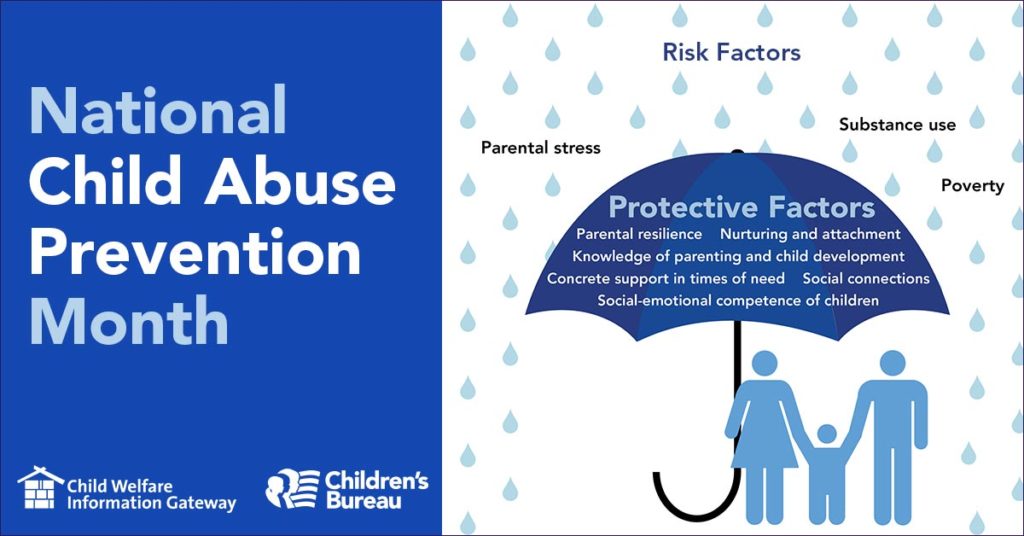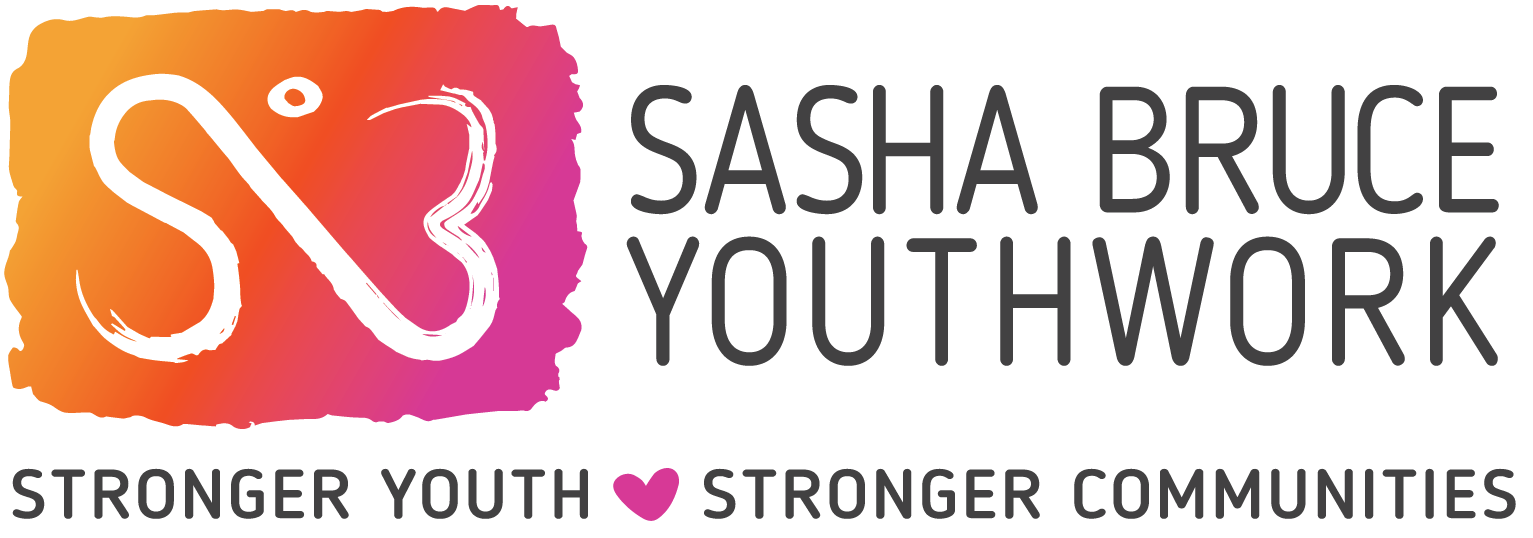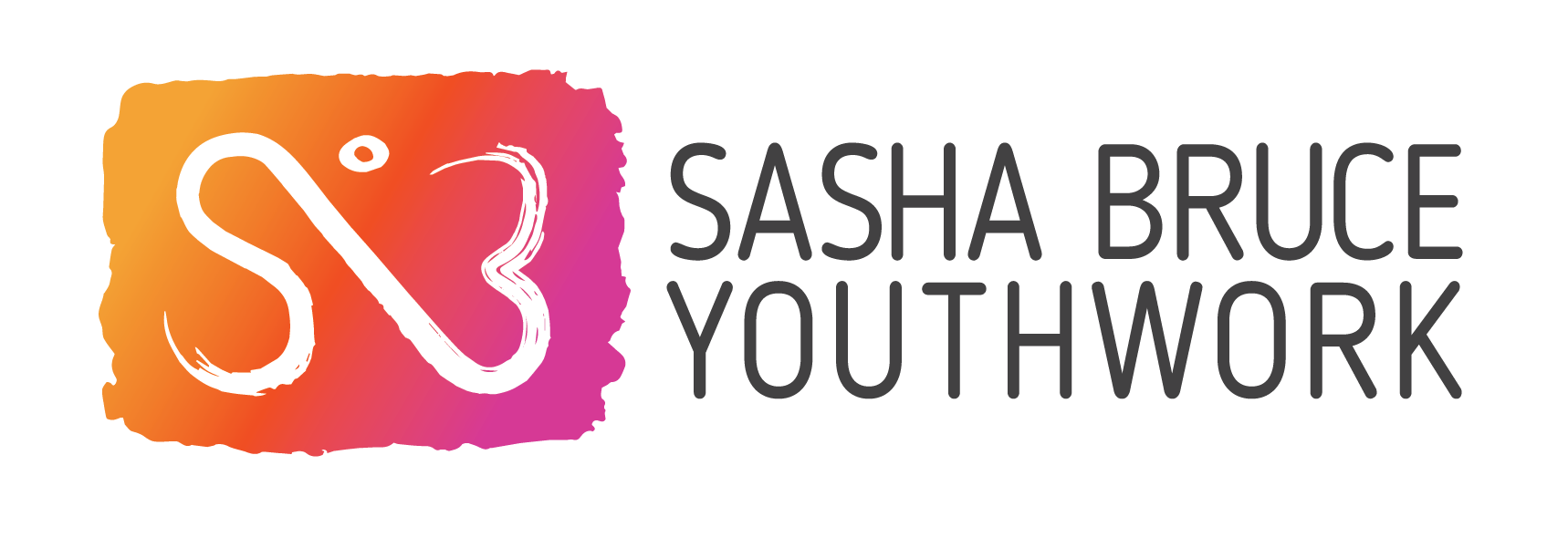

Each year nearly 2 million children receive child abuse prevention services. It’s estimated that at least 1 in 7 children in the US have experienced child abuse and/or neglect within the past year. Child abuse can be found in many different forms such as neglect, physical abuse, emotional & psychological abuse and sexual abuse.
In support of National Child Abuse Prevention Month The Sasha Bruce Youthwork Family Strengthening Program has developed the following child abuse prevention guidelines to help keep your child, or a child you care for, from becoming a statistic.
Child Abuse Prevention Guidelines
- Find your own healthy outlets to manage stress (take a walk, exercise, cook, pray, take a bath, write, draw, listen to music, phone a friend, or any other things you enjoy)
- Parenting is a full time job! It can be physically and emotionally exhausting and emotional overload can lead to loss of control or responding in ways we regret. You are the example for your child and can show that managing stress leads to a more balanced response.
- Parents are people too! Remember your own needs, hobbies, relationships, and make sure you’re taking care of yourself so you can take care of your child.
- Communication is key
- Emotions and triggers can sometimes block communication. Make sure everyone is calm enough to have a healthy conversation. Create some family rules about how you want to talk about difficult subjects (let your child suggest some rules and you suggest some too!) Be mindful of your tone and your words as they set the tone for conversation.
- Be creative in learning each other’s communication style and try different modes and methods to communicate (asking questions, email reminders of expectations, texting, parent/child journals, art or songs, talking).
- Listen and ask questions. Try to understand what your child is telling you whether or not you agree with it. Understanding what they’re thinking gives you more information to decide what to do next.
- Address your expectations clearly
- Establish your house rules and consequences and make them clear and known ahead of time.
- Don’t engage in power struggles! When you deliver a consequence, your child will be upset and they may have an emotional response. Wait to engage in conversation until your child is thinking clearly.
- Remember you are family!
- It’s not a battle, and you don’t lose anything by being nice! You can love your child and provide discipline at the same time. Building a connection helps to carry you through those times when you need to challenge or discipline your child.
- Acknowledge the things you love and appreciate about each other. Sometimes problems seem like they take over, but often we forget to point out the positive. Leave off any “buts” (For example, he’s so smart but he never does his work) to really say what you appreciate. Address the problems separately from your acknowledgments.
- Consider family fun times, activities, or incentives. If it’s appropriate to your situation, sometimes it helps to take the focus off of the problem for a while or to shift the energy and remind you of why you care about each other.
- Get help
- Know your supports and create a plan ahead of time for who you will call when you are on your last nerve. Have all phone numbers and resources available to yourself so that if you need it, you’re already ready.
- Consider reaching out to your extended family, friends, and others who know your child. Take breaks if you need to. If you are worried about hurting your child, consider reaching out to Bruce House for respite care and/or talking to a therapist or life coach. Parenting is hard and you deserve support!
Call the Family Strengthening Program, we’re here to help!
Together we can prevent child abuse and work to strengthen families. To learn more about child abuse prevention please reach out to FSP Manager Sarah Lovett at 202-875-3261 or email strengtheningfoundations@sashabruce.org, The SBY Family Strengthening Program is staffed with professional counselors who offer intensive case management, individual counseling, and family mediation for young people from the ages of 12-24 and their families or support networks. We work with families to improve relationships, increase family stability, and decrease high-risk behaviors of youth.
For 24/7 emergency support, contact the Sasha Bruce Emergency hotline at 202-547-7777 .









